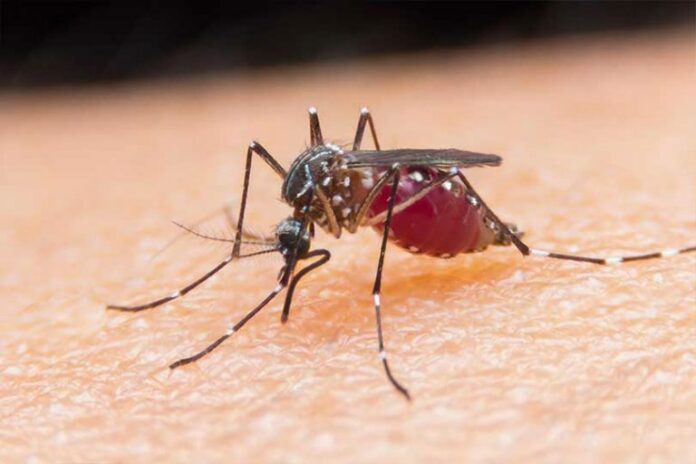KUALA LUMPUR, April 14 — The public is advised to get tested for dengue at a medical facility if they persistently have symptoms of fever, diarrhoea and body ache, even though tested negative for COVID-19, said Malaysian Medical Association (MMA) president Dr Koh Kar Chai.
He said the dangers of dengue fever are still very much real and relevant, but the public tends to put it on the backburner as they are more cautious of COVID-19 as compared to other diseases after living with the pandemic for over two years.
“It is always advisable to see a doctor to test for dengue if you have persistent fever and feeling unwell as there is currently no self-test kit available for dengue, unlike COVID-19.
“People are more concerned with COVID-19 and tend to overlook dengue during this pandemic. However, dengue is still lurking around and is a looming threat that we need to be aware of,” he told Bernama, in an interview recently.
Dr Koh added that anyone regardless of age can develop severe illness with dengue or COVID-19 and both infections are more likely to cause complications in adults with underlying chronic conditions such as diabetes and heart disease, as well as in young children.
He highlights that a patient’s condition will be worse if they have a co-infection of COVID-19 and dengue because it weakens the immune system, and patients are more susceptible to progress into a critical condition.
He noted that most dengue cases may not require hospitalisation and can be managed at home, but patients are required to check in with their doctor for a regular blood test to monitor their blood count daily.
He said most patients will feel better in about a week after following through with supportive medication and proper care as instructed by their doctors.
“If they are tested positive for dengue at medical facilities, the patient will be advised by the doctor if they can be treated at home or require further monitoring in a hospital,” he said adding that they would be encouraged to drink plenty of water and electrolyte fluids to stay hydrated.
“Doctors will also advise patients to watch out for any danger signs of dengue such as frequent vomiting and/or diarrhoea, abdominal pain, drowsiness or irritability, difficulty in breathing, red spots or patches on the skin, bleeding from the nose or gums, vomiting blood, black coloured stools, or heavy menstruation.
“If a caretaker or the patient themselves notices any of these signs, please go to the nearest hospital or emergency department immediately,” Dr Koh urged.
Dr Koh also shared patients can get infected with dengue more than once since there are four serotypes of dengue, and these are DENV1, DENV2, DENV3 and DENV4. A person can get dengue up to four times in a lifetime and there is a chance that it can be more severe during the second infection, causing patients to be at a higher risk of developing severe dengue that can lead to bleeding and possibly death.
“Since there are four serotypes of dengue virus, if a patient contracts one of the dengue serotypes and recovers from it, the patient will develop immunity against that particular serotype but continues to remain vulnerable to the other three serotypes,” he said.
Dr Koh highlights that the public should heed the Health Ministry’s advice on keeping their house and surrounding clean as well as making sure it is free from mosquito breeding ground because a person can be infected with dengue whether they are indoor or outdoor, even though studies showed that the chances are higher when outdoors.
“Even when indoors, people tend to forget to ensure that there are no breeding sites in their house, especially at wet areas with stagnant waters such as in the kitchen and bathroom. Hence, indoor spaces still pose a risk for dengue infection,” he said.
This information is available to the public for information purposes only; it should not be used for diagnosing or treating a health problem or disease. It is not intended to substitute for consultation with a healthcare provider. Please consult your healthcare provider for further advice.
This community service message is supported by Takeda Malaysia.
















